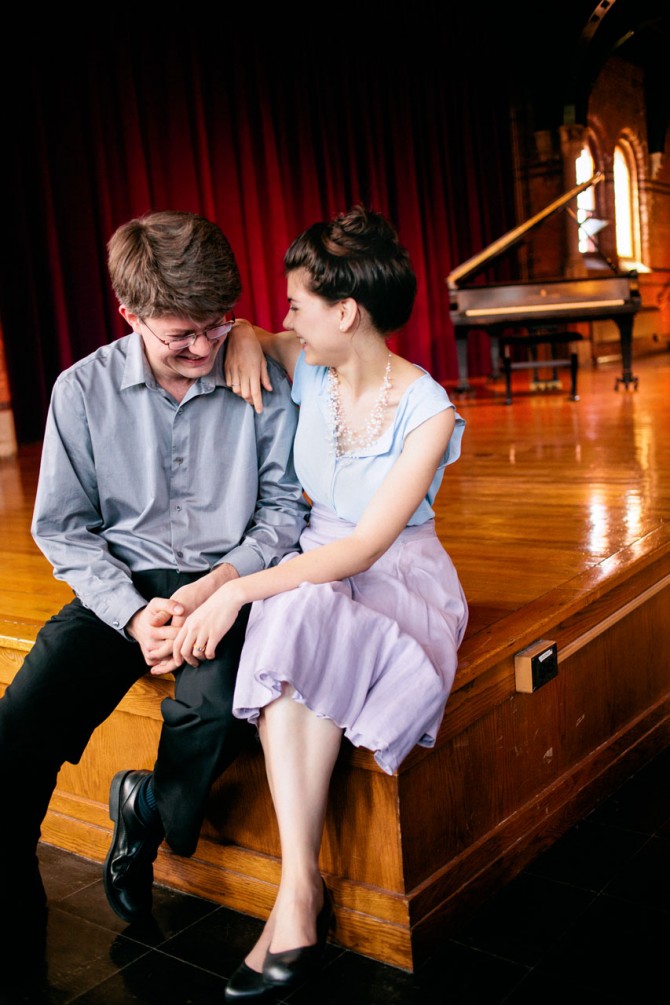Album from A&S couple captures present moment
By Kate Blackwood
Barnes Hall is special to soprano Lucy Fitz Gibbon, interim director of the Cornell Voice Program in the College of Arts and Sciences, and her husband, Ryan McCullough, a pianist and doctoral candidate in music.
“We’ve each spent untold hours rehearsing and performing there since 2013,” Fitz Gibbon said. “But also, there is something special about this consecrated space that is now used for the communion of musical performances.”
Fans of contemporary classical music can enjoy a new CD recorded in the space. On May 15, Fitz Gibbon and McCullough will release their first collaborative album, “Descent/Return,” recorded in Barnes Hall in 2018 on the “Kovner” piano – an early 20th century Steinway from Cornell’s Center for Historical Keyboards.
The recording features art songs – musical settings of poetry – by contemporary American composers James Primosch and John Harbison, with whom Fitz Gibbon and McCullough have established creative relationships. The album also includes two works for solo piano, one by each composer.
And though the music was recorded long before the COVID-19 pandemic, Fitz Gibbon said, “ there are some striking ways in which the poetry in these songs feels relevant to the current moment.”
The whole of the album’s first song cycle – settings by Harbison of poetry by Michael Fried – is about solitude in different forms, Fitz Gibbon said. The first poem set to music, “Japan,” speaks of a life in isolation, a sort of artistic quarantine.
Later in the album, themes on the border between life and death appear. The poems “Descent” and “Return,” set to music by Primosch, depict Aeneas’ journey to the underworld.
The album has a light side, too, said Fitz Gibbon, who believes it will appeal to a wide audience. “There’s even a song about baseball,” she said.
Fitz Gibbon and McCullough have been working together since 2006 and gave their first duo recital in 2009. They were married at Cornell in 2016 and have two more collaborative albums in the works.
Performing together is not for every couple, they said, but they have similar musical interests and have found ways to make their closeness benefit their music.
Knowing the composers also enhanced this recording, Fitz Gibbon said.
“When you work with a composer, you can ask questions,” she said. “It allows you to transmit something ineffable, something that wasn’t written on the page but can be expressed through performance.”
Kate Blackwood is a writer for the College of Arts and Sciences.
Media Contact
Get Cornell news delivered right to your inbox.
Subscribe

